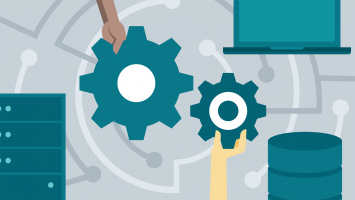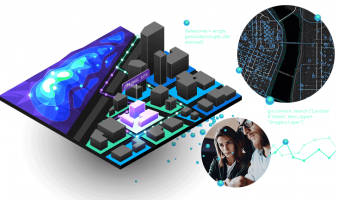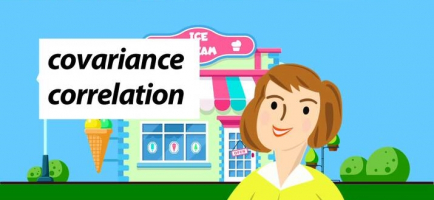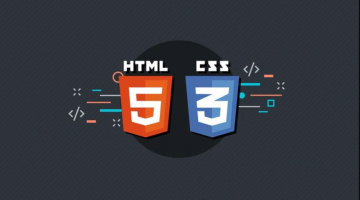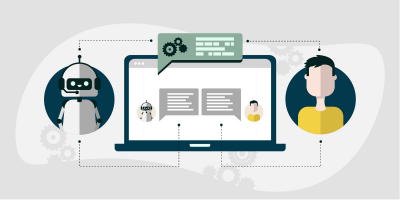Top 8 Best Online Representational State Transfer Courses
Are you wondering which remote classroom to attend? You have spare time and want to broaden your horizon about a specific field of study whilst just staying at ... read more...home. Thus, to satisfy the burgeoning demand for online yet qualifying courses, Toplist has complied a rundown of the Best Online Representational State Transfer Courses offered by the prestigious universities, famous companies, top organizations and knowledgeable instructors across the globe for who in need!!!
-
This course teaches you how to retrieve and process data from online services. It covers Python list comprehensions and gives you the chance to experience extracting and processing highly nested data. You'll also learn how to communicate with REST APIs using the Python requests module and what to look for in API documentation. As your final project, you will create a "tag recommender" for the Flickr photo-sharing service.
If you've already completed the "Python Basics" and "Python Functions, Files, and Dictionaries" courses, this one is for you (courses 1 and 2 of the Python 3 Programming Specialization). You can profit from this course without studying the previous two if you are already familiar with Python foundations but want to practice receiving and processing complex nested data from Internet services. The Python 3 Programming Specialization has five courses, the third of which is this one. Keep reading to discover more Best Online Representational State Transfer Courses.
This course offers:
- Flexible deadlines: Reset deadlines in accordance to your schedule.
- Shareable Certificate: Earn a Certificate upon completion
- 100% online: Start instantly and learn at your own schedule.
- Course 3 of 5 in the: Python 3 Programming Specialization
- Intermediate Level
- Approx. 16 hours to complete
- Subtitles: Arabic, French, Portuguese (European), Italian, Vietnamese, Korean, German, Russian, English, Spanish
Coursera Rating: 4.7/5
Enroll here: https://www.coursera.org/learn/data-collection-processing-python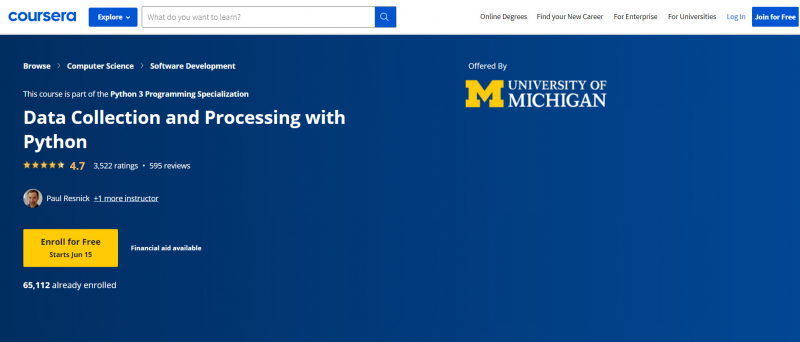
coursera.org 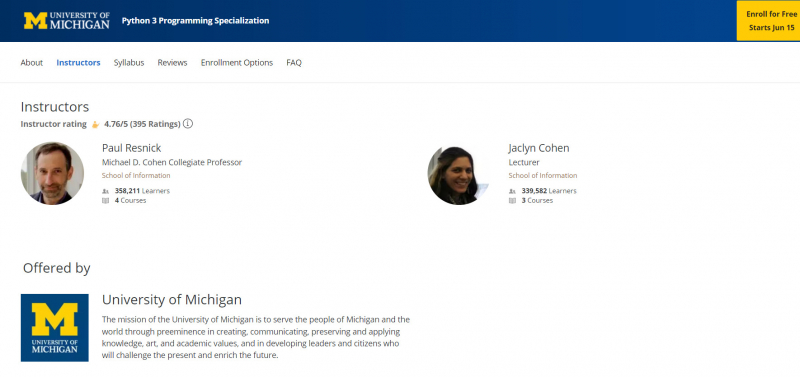
coursera.org -
The first online course Toplist would like to introduce to you in this list of the Best Online Representational State Transfer Courses is the Software Design and Architecture Specialization. You'll learn how to apply design ideas, patterns, and architectures to construct reusable and flexible software applications and systems in the Software Design and Architecture Specialization. You'll learn how to use a visual notation to express and document the design and architecture of a software system. Employable skills and relevant expertise in the software industry can be developed through practical examples and opportunities to apply what you've learned.
The Capstone Project entails evaluating and developing a Java-based Android application over the duration of the Specialization's four courses. This software will progress from a single-user application that stores data locally to a multi-user application that stores data remotely. In each course, you'll be given a Java codebase to work with as a starting point, and you'll be expected to describe and implement new features based on what you've learned so far. Tutorials are available to assist you in comprehending the beginning codebase and learning the fundamentals of Android development.
This course offers:
- Flexible deadlines: Reset deadlines in accordance to your schedule.
- Shareable Certificate: Earn a Certificate upon completion
- 100% online: Start instantly and learn at your own schedule.
- Beginner Level: Basic Java programming knowledge (ability to read and write Java code and use object-oriented constructs in Java).
- Approximately 4 months to complete: Suggested pace of 3 hours/week
- Subtitles: English, Arabic, French, Portuguese (European), Italian, Vietnamese, German, Russian, Spanish, Portuguese (Brazilian)
Coursera Rating: 4.6/5
Enroll here: https://www.coursera.org/specializations/software-design-architecture
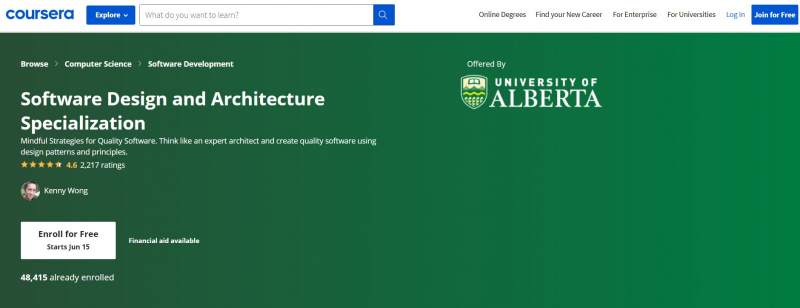
coursera.org 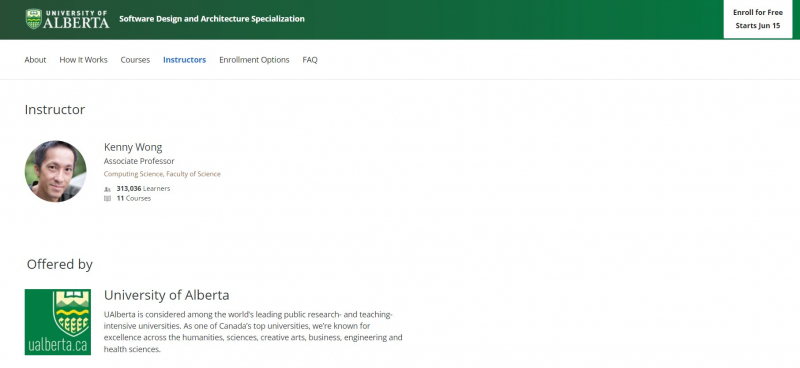
coursera.org -
You will learn how to work with data on iOS in this course. Data is the most important component of every functional software, and you must learn how to present it to the user appropriately. You'll learn how to display data to users using tables and collection views, as well as how to leverage Core Data to create more sophisticated, data-driven apps. Data is required for every program. As an iOS developer, the most typical thing you'll do is make web queries. You'll discover how to integrate your apps with servers and external data. You'll build a ToDo app throughout the course, and you'll learn how to decode data from a web server and make POST requests.
This course is offered by LearnQuest. LearnQuest is the preferred training partner of the world's most successful businesses, organizations, and government entities. Our team has more than 20 years of expertise creating, producing, and delivering a full range of industry-leading technology education programs and training solutions to clients all over the world. Our instructors, who have extensive industry expertise and an unwavering dedication to quality, lead sessions in a variety of delivery formats so that our clients may get the training they need when and when they need it.
This course offers:
- Flexible deadlines: Reset deadlines in accordance to your schedule.
- Shareable Certificate: Earn a Certificate upon completion
- 100% online: Start instantly and learn at your own schedule.
- Course 3 of 4 in the: Swift 5 iOS Application Developer Specialization
- Advanced Level
- Approx. 16 hours to complete
- Subtitles: Arabic, French, Portuguese (European), Italian, Vietnamese, German, Russian, English, Spanish
Enroll here: https://www.coursera.org/learn/swift-ios-tables-networking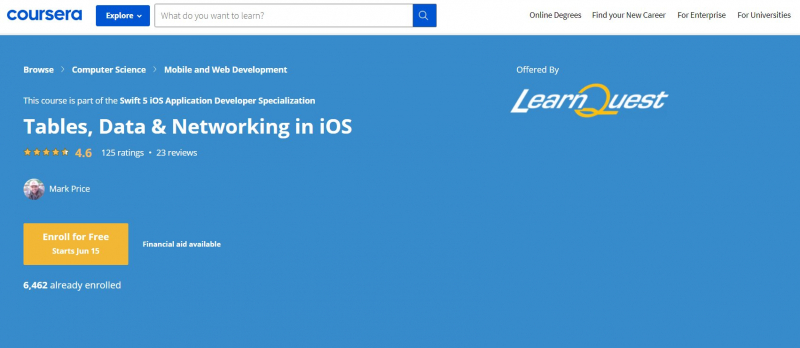
coursera.org 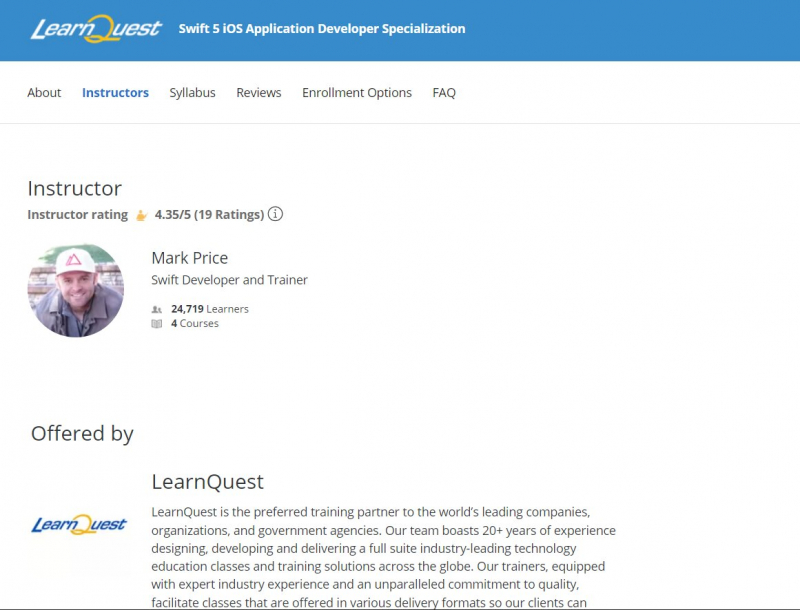
coursera.org -
In this project, you will construct a restful web application that returns a list of random numbers to the consumer using the Spring Boot Framework. To communicate data across systems and applications, a web service uses a standard protocol and message system. Restful is an acronym for Representational State Transfer, which is a method of transferring XML or, more typically, JSON packets across different applications using HTTP. The Spring Boot Framework generates the underlying code automatically, allowing the developer to concentrate on the web service rather than the boilerplate code it generates.
The Instructor of this course is David Dalsveen. With an established experience working in the computer software sector, David Dalsveen is a Software Engineer and also a Teacher. He has a strong consultant with C, C++, Java, JavaScript, and Python skills.
Your instructor will lead you through these steps in a video that plays in a split-screen with your work area: Using Visual Studio Code, create a Gradle-based Java Spring Boot Web Service Project. As the model for representing a set of random numbers, use the Plain Old Java Class. In the controller directory, create the Rest Controller. In the Spring Rest Controller, implement the HTTP get requests and call the model. After launching the Tomcat web server, use an application to consume the Spring web service.
This course offers:
- 2 hours
- Beginner-friendly
- No download needed
- Split-screen video
- English
- Desktop only
Coursera Rating: 4.2/5
Enroll here: https://www.coursera.org/projects/restful-web-service-spring-boot-visual-studio-coder-gradle
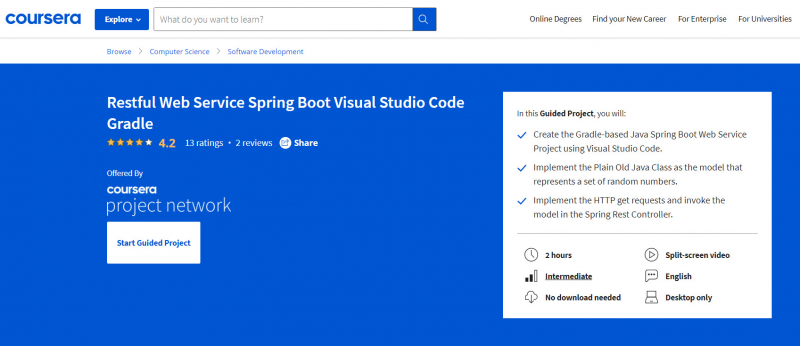
coursera.org 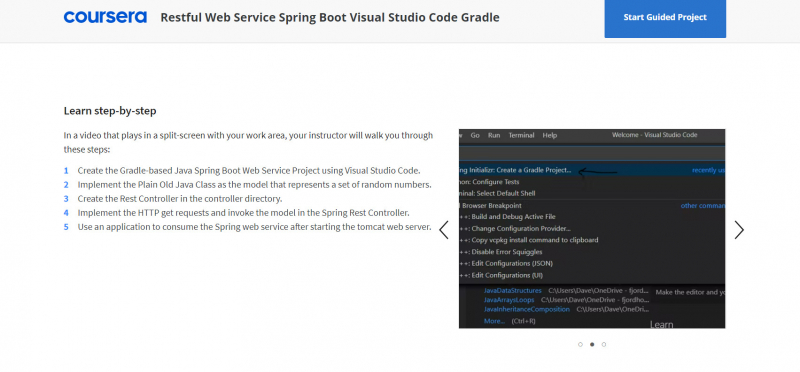
coursera.org -
The fundamentals of Junos OS DevOps automation tools, protocols, and technologies are demonstrated in this specialization. Basic DevOps principles, Junos APIs, and the Network Configuration Protocol are all covered in this specialization (NETCONF). It focuses on automating Junos systems with Python, Junos PyEZ, Ansible, and the Junos Representational State Transfer (REST) API. As data formats for Junos automation, the Extensible Markup Language (XML), JavaScript Object Notation (JSON), and YAML Ain't Markup Language (YAML) are introduced.
This course covers the fundamentals of DevOps, Junos APIs, and the Network Configuration Protocol (NETCONF). To automate Junos platforms, it focuses on Python, Junos PyEZ, Ansible, and the Junos Representation State Transfer (REST) API. As data formats for Junos automation, the Extensible Markup Language (XML), JavaScript Object Notation (JSON), and YAML are introduced. These abilities enable network reliability engineers to setup networks remotely and ensure that configuration updates are deployed without downtime. Students will be guided through lessons that include questions and tests.
This course offers:
- Flexible deadlines: Reset deadlines in accordance to your schedule.
- Shareable Certificate: Earn a Certificate upon completion
- 100% online: Start instantly and learn at your own schedule.
- Beginner Level: Basic understanding of the OSI model and the TCP/IP protocol suite. Basic understanding of computer networking concepts
- Approximately 1 month to complete: Suggested pace of 4 hours/week
- Subtitles: English
Enroll here: https://www.coursera.org/specializations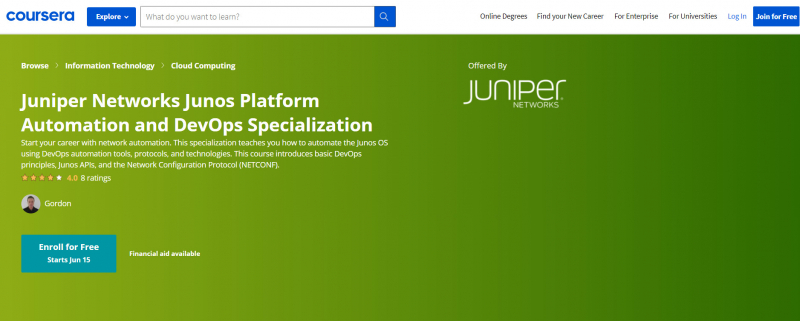
coursera.org 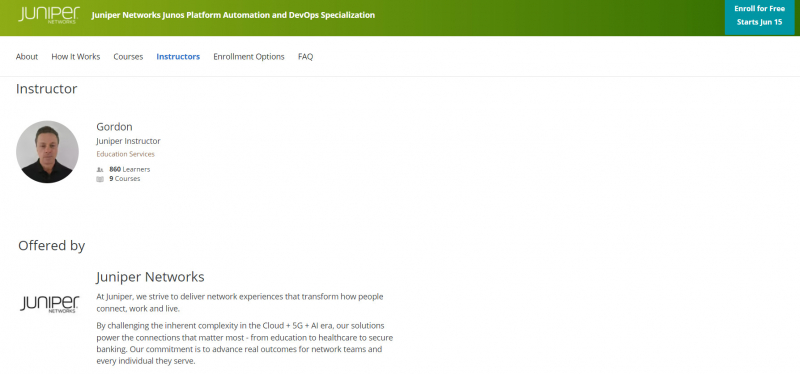
coursera.org -
This is one of the Best Online Representational State Transfer Courses. You will learn the fundamentals of Azure Serverless Functions and Azure API Management using NodeJS in this Guided Project. You'll make a Function App and two Serverless Functions that will be activated by HTTP calls. You'll configure them to receive data using both query and path parameters, demonstrating your mastery of route templates. Then, using inbound processing rules, you'll put up an API Management instance to offer them as a single, homogenous API that employs path parameters. If you don't already have an Azure subscription, please create one at https://portal.azure.com before starting this Guided Project.
The Instructor of this course is Mario Ferraro. Mario Ferraro works as a CTO, tech lead, digital consultant, and software developer for startups. He has a history in open source software development and has worked with a variety of companies, including Google, for numerous years.
This course offers:
- 2 hours
- Beginner-friendly
- No download needed
- Split-screen video
- English
- Desktop only
Enroll here: https://www.coursera.org/projects/azure-create-a-rest-api-using-nodejs-serverless-functions
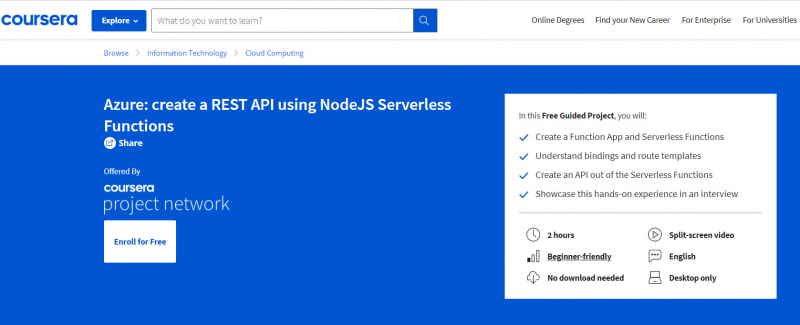
coursera.org 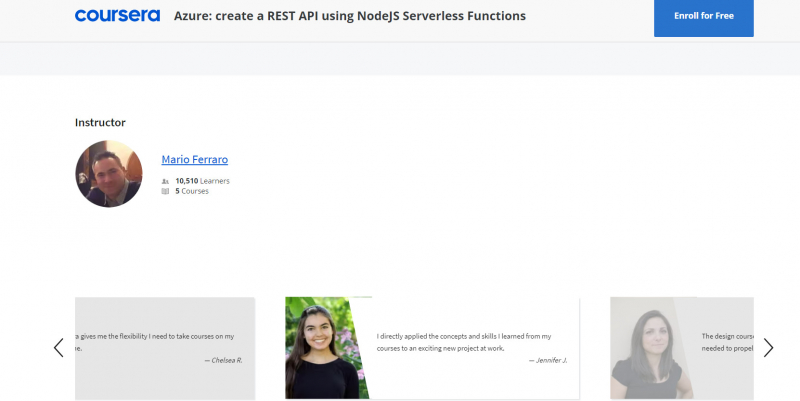
coursera.org -
The fundamentals of Junos OS DevOps automation tools, protocols, and technologies are demonstrated in this specialization. Basic DevOps principles, Junos APIs, and the Network Configuration Protocol are all covered in this specialization (NETCONF). It focuses on automating Junos systems with Python, Junos PyEZ, Ansible, and the Junos Representational State Transfer (REST) API. As data formats for Junos automation, the Extensible Markup Language (XML), JavaScript Object Notation (JSON), and YAML Ain't Markup Language (YAML) are introduced.
The Instructor of this course is Gordon. Gordon has been an instructor at Juniper Networks since 2006, with a Master's degree in teaching and 30 years of technology experience. He's also worked as a courseware developer for the past six years, assisting students in obtaining industry-recognized Juniper certifications. He enjoys cooking, eating, spending time outdoors, laughing, and traveling when he is not working.
This course is offered by Juniper Networks. It aims to create network experiences that change the way people connect, work, and live. Its solutions power the connections that matter most, from education to healthcare to safe banking, by overcoming the inherent complexity of the Cloud + 5G + AI future. The goal is to help network teams and the people they serve achieve actual results.
This course offers:
- Flexible deadlines: Reset deadlines in accordance to your schedule.
- Shareable Certificate: Earn a Certificate upon completion
- 100% online: Start instantly and learn at your own schedule.
- Course 3 of 3 in the: Juniper Networks Junos Platform Automation and DevOps Specialization
- Beginner Level: Basic knowledge of computer network concepts/Basic knowledge of TCP / IP protocol suite
- Approx. 4 hours to complete
- Subtitles: English
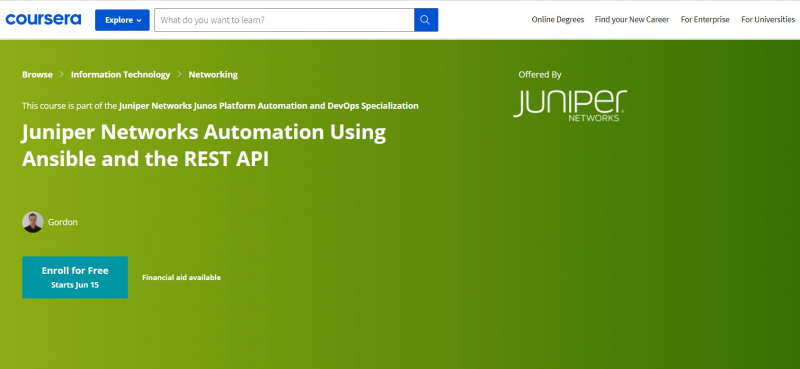
coursera.org 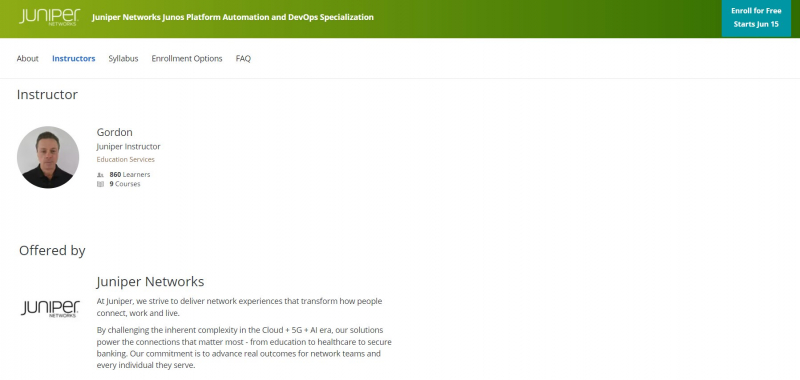
coursera.org -
Investigate the procedures and concepts that underpin APIs and their infrastructure. Examine the fundamental concepts that govern API development, as well as the fundamentals of REST architecture (representational state transfer architectural style). Django may be used to create basic API and REST data backbones for web apps. Learn about new API technology and how to design and use APIs in different ways. Finally, you'll test, optimize, and provide API documentation.
This course is offered by Meta. Meta creates software that allows people to stay in touch with friends and family, find communities, and expand their companies. After passing the Meta Social Media Marketing Certificate or the Meta Marketing Analytics Certificate, you'll have access to the Meta Career Programs Job Board, which has over 200 firms eager to hire. Are you ready to master new skills and the tools that web developers use to build websites and web applications? This 10-course program, built by Meta's software engineering professionals, will prepare you for a job as a back-end developer at the entry-level.
This course offers:
- Flexible deadlines: Reset deadlines in accordance to your schedule.
- Shareable Certificate: Earn a Certificate upon completion
- 100% online: Start instantly and learn at your own schedule.
- Course 6 of 10 in the: Meta Back-End Developer
- Beginner Level: None! Learners do not need prior web development experience. Only basic internet navigation skills and an eagerness to get started with coding.
- Subtitles: English
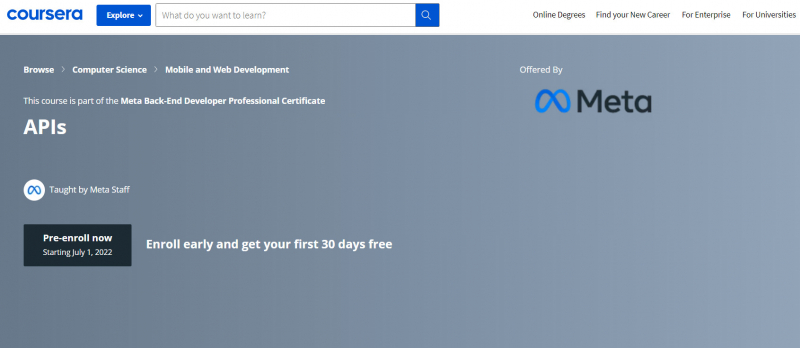
coursera.org 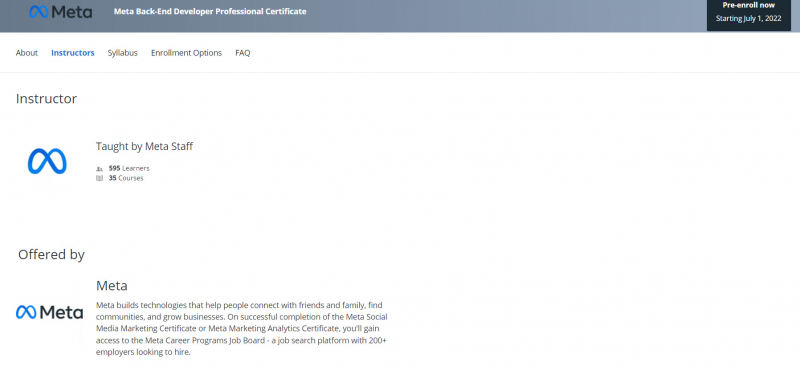
coursera.org















